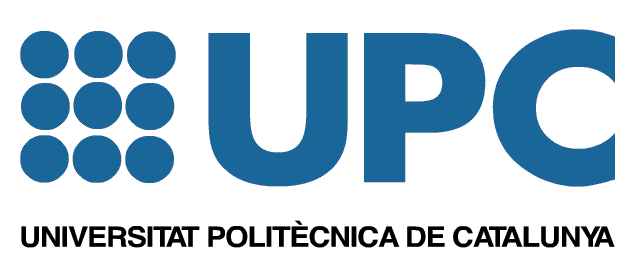The Consortium
 The CLOCWiSe Consortium is a strong blend of partners combining knowledge and
experience of high reputation in Research and Development in various fields, like CLP,
Operational Control, Hydrodynamics, etc. and a long standing project tradition in advice
and consultancy about water-related matters, world wide. The strong position in Research
and Development guarantees continuous improvement and further development of CLOCWiSe.
It will remain at the front of developments. The project tradition, on the other hand,
guarantees continuous support and maintenance.
The CLOCWiSe Consortium is a strong blend of partners combining knowledge and
experience of high reputation in Research and Development in various fields, like CLP,
Operational Control, Hydrodynamics, etc. and a long standing project tradition in advice
and consultancy about water-related matters, world wide. The strong position in Research
and Development guarantees continuous improvement and further development of CLOCWiSe.
It will remain at the front of developments. The project tradition, on the other hand,
guarantees continuous support and maintenance.


The Universitat Politècnica de Catalunya
is a young university founded in 1971. Its origins,
nevertheless, go back to the last century more than hundred and twenty years ago. The research
group “Control of Industrial Resources and Dynamic Processes” of the
Institut de Robòtica i Informàtica Industrial (IRI),
focuses on basic and applied research on Control Systems and Robotics.
The research group has a large experience in applied research on process-control systems applied
to large utilities and networks. The main lines of work centre around control and optimisation
of complex supply and distribution networks. Several projects have been conducted with European
water and electricity companies.
The group has gained important knowledge and expertise in Constraint Logic Programming (CLP),
and is a node of the ESPRIT Network of Excellence in Computational Logic, Compulog Net II.
The
PLANETS
project treating maintenance scheduling on power-distribution networks, brought the
research group a Special Tribute in the 1995 Technology Transfer Award of the UPC. The experience
and knowledge gained in the
PLANETS project is the basis of CLOCWiSe.

The University of Birmingham (UB) enjoys
a high reputation and is one of the leading research
universities in the UK. Research activities of the
Control and Estimation Group in the
School of Electronic and Electrical Engineering concentrate on the development
of methodologies and techniques for analysis and design of control systems under uncertainty,
with applications to technological processes, electro-mechanical systems and water systems.
The Group was involved in collaborative projects with UK, Polish, German, French and Spanish
water authorities on modelling, simulation and optimal scheduling of water supply and
distribution systems. Recent projects include also on-line monitoring of integrated quantity
and quality and decision support.
Professor Brdys, the consortium representative at UB, recently published a book on the subject:
M.A. Brdys and B. Ulanicki, Operational Control of Water Systems, Prentice Hall International,
1994.
Currently, projects are running on joint state and parameter estimation for on-line monitoring
and decision making purposes and integrated Operational Control of water quality and quantity.
Future research will include an integration of CLP techniques with other numerical solvers to
develop new generation of hybrid solvers, which is expected to produce a breakthrough in the
field of management, Operational Control and monitoring of water systems.

Founded in 1927, WL | Delft Hydraulics
is among the worlds largest and best known independent
consulting and research institutes, providing clients with decisive advice and technical
assistance in water-related issues. Being a foundation,
WL | Delft Hydraulics is a not-for-profit
organisation. Almost 400 employees handle projects ranging from applied research and consultancy
queries to multi-disciplinary policy studies. National and international clients include government
authorities, policy makers and administrators responsible for the short- and long-term governance
of bodies of water and related infrastructures. Clients are also in the private sector, for
example among multilateral agencies, consulting engineers, contractors, and in industry.
WL | Delft Hydraulics has a long-standing reputation for excellence in hydrology, hydraulics,
morphology, water quality and ecology. Construction and design matters related to offshore, coasts,
harbours, estuaries, rivers and canals, and industry, are approached in a manner tuned to the
specific requirements of the client. In addition, at the policy level, decision support and
environmental impact assessments are delivered in the above mentioned working areas.
WL | Delft Hydraulics has a full range of experimental facilities and computer programs for mathematical
modelling. Experimental resources include a variety of flumes, waves-, current- and tidal basins,
calibration and testing circuits. Most of the wide range of computer programs, e.g. for optimising
design and operation of pipeline systems, have been developed and validated in-house. On the basis
of a sound understanding of the processes involved,
WL | Delft Hydraulics can simulate all water
systems, numerically, experimentally, or through a combination of the two.
© CLOCWiSe 1996, 1997, 1998, 1999, 2000
 The CLOCWiSe Consortium is a strong blend of partners combining knowledge and
experience of high reputation in Research and Development in various fields, like CLP,
Operational Control, Hydrodynamics, etc. and a long standing project tradition in advice
and consultancy about water-related matters, world wide. The strong position in Research
and Development guarantees continuous improvement and further development of CLOCWiSe.
It will remain at the front of developments. The project tradition, on the other hand,
guarantees continuous support and maintenance.
The CLOCWiSe Consortium is a strong blend of partners combining knowledge and
experience of high reputation in Research and Development in various fields, like CLP,
Operational Control, Hydrodynamics, etc. and a long standing project tradition in advice
and consultancy about water-related matters, world wide. The strong position in Research
and Development guarantees continuous improvement and further development of CLOCWiSe.
It will remain at the front of developments. The project tradition, on the other hand,
guarantees continuous support and maintenance.


